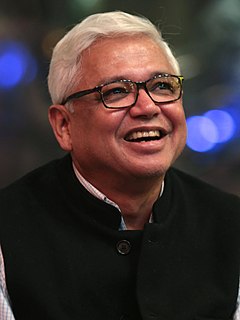A Quote by Albert J. Nock
The State, on the other hand, both in its genesis and by its primary intention, is purely anti-social. It is not based on the idea of natural rights, but on the idea that the individual has no rights except those that the State may provisionally grant him. It has always made justice costly and difficult of access, and has invariably held itself above justice and common morality whenever it could advantage itself by so doing.
Related Quotes
We may think that justice is everyone being equal, having the same rights, sharing the same kind of advantages, but maybe we have not had the chance to look at the nature of justice in terms of no-self. That kind of justice is based on the idea of self, but it may be very interesting to explore justice in terms of no-self.
[T]hat state, love, is so utterly alien to that other idea without which we cannot live as human beings --- the idea of justice. It is only because love is so profoundly the enemy of justice that our minds, shrinking in horor from its true nature, try to tame it by uniting it with its opposite [...] in the hope that if we apply all the metaphors of normality, that if we heap them high enough, we shall, in the end, be able to approximate that state metaphorically.
... the modern state masks itself in moral ideologies which obscure its actual conduct. One of the most compelling and insidious of these ideologies is the doctrine of natural rights. It was to secure these rights that the modern state was invented in the first place, and it is impossible, especially for Americans, not to be seduced by the doctrine. But it is nonetheless a philosophical superstition.
Ajamu Baraka is a human rights advocate and an international human rights advocate, who's been defending racial justice, economic justice, worker justice, indigenous justice, and justice for black and brown people all over the world, and in the United States has been helping to lead the charge against the death penalty here, and is an extremely eloquent and empowering person. And one of the great things about running with him is that we speak to all of America.
We also need to find a language capable of defending government as an element of the common good, one that does not define itself as both a punishing and corporate state. This is not merely a matter of redefining sovereignty, but also rethinking what is distinctive about the social state, social responsibility, and the common good.
My own sense as an American is that we have begun to experience the disadvantages of framing virtually all moral issues in terms of individual rights. American history has consisted of swings back and forth between rights talk on the one hand and talk of duties, responsibilities, and the common good on the other hand. Recent decades have seen a big swing toward rights, and conceived in very individualistic terms, which hasn't always been the case even with rights.
By assigning his political rights to the state the individual also delegates his social responsibilities to it: he asks the state to relieve him of the burden of caring for the poor precisely as he asks for protection against criminals. The difference between pauper and criminal disappears - both stand outside society.
Equality, in a social sense, may be divided into that of condition, and that of rights. Equality of condition is incompatible with civilization, and is found only to exist in those communities that are but slightly removed from the savage state. In practice, it can only mean a common misery.
Equality of rights is a peculiar feature of democracies. These rights are properly divided into civil and political, though even these definitions are not to be taken as absolute, or as literally exact.







































